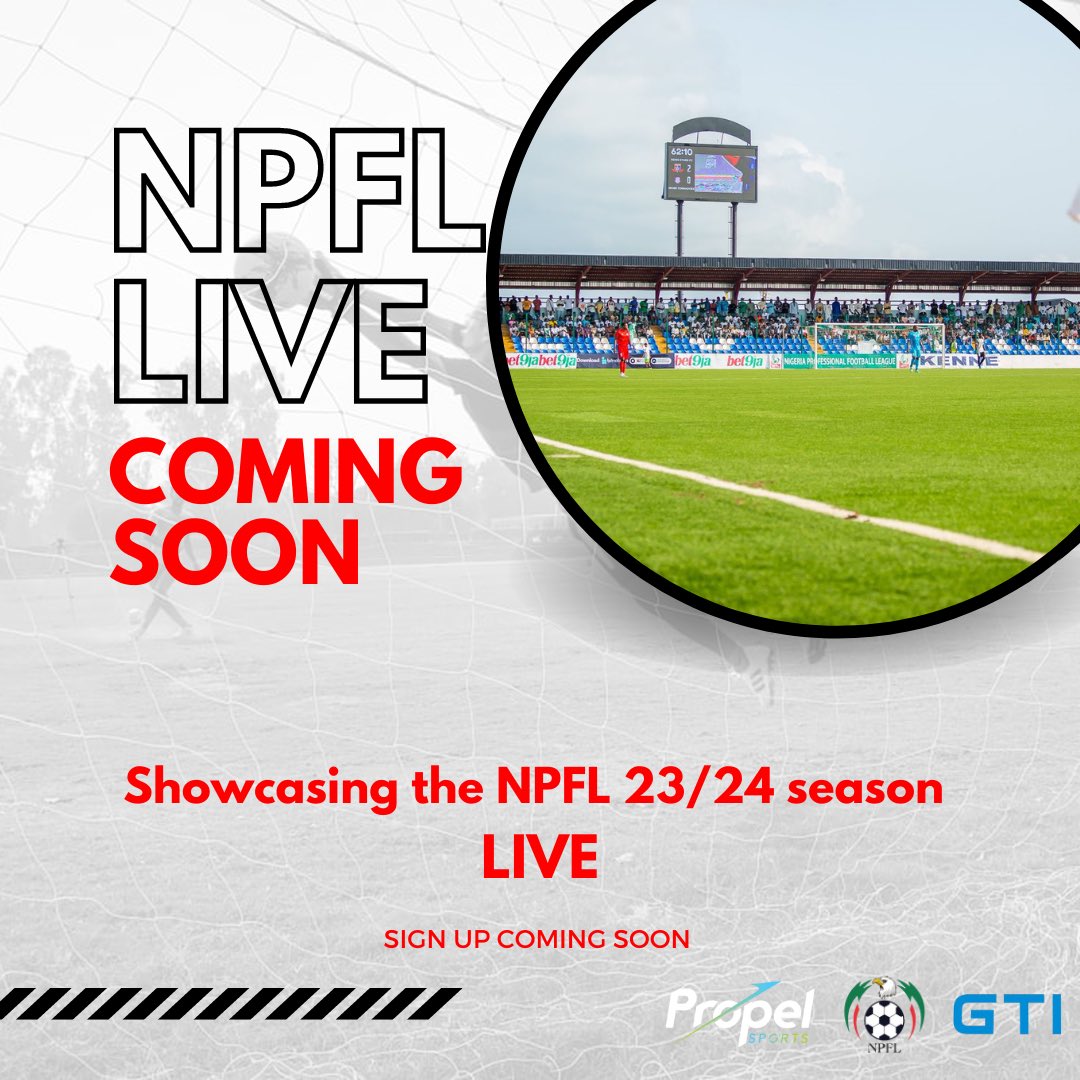To give the Nigerian Premier Football League (NPFL) a premium football experience, the introduction of the “First in Africa NPFL AI camera” by Propel Sports was met with much curiosity and high hopes.
However, with the first test result made available to the public, it has become evident that what was promised as a groundbreaking technological leap has turned out to be nothing more than a disappointment.
NPFL lovers who had anxiously waited for the test run of the AI camera were left in dismay as they witnessed a broadcast that failed to meet even the most basic standards of visual quality. The much-touted “revolutionary” camera system, which was supposed to provide viewers with immersive angles and perspectives, fell astonishingly short.
Instead of a dynamic and engaging experience, viewers were presented with a static, monotonous view of a rotating stick, barely capturing a fraction of the action on the pitch.
Sports journalist, Babatunde Koiki’s observations brought to light a jarring discrepancy between international broadcasting standards and the NPFL’s offering.
At the FIFA World Cup in Qatar, an average of 42 cameras per match were employed to deliver comprehensive and captivating coverage. Similarly, Premier League matches are broadcast using around 30 cameras, including high-definition units, drones, Sky Cams, and Spider Cams.
But, to the dismay of this writer, Propel Sports expects Nigerians to pay a subscription fee, then stream with their mobile internet data a stick twirling gracefully, as it attempts to capture a world of football action.
As the NPFL’s decision-makers opt for a pay-to-watch model that promises minimal value in return, they seem to disregard the fact that fans are accustomed to superior viewing experiences at a fraction of the cost compared to what they are offering.
Many, have raised the pertinent question: Why invest in a high-profile AI camera project when the quality of its output fails to justify the expense? Propel Sports’ inability to deliver on its promise has left many wondering about the true intentions behind this endeavour. As lovers of Nigerian football will be forced to grapple with subpar viewing experiences, it begs the question of whether this venture was truly driven by innovation or was merely a rushed attempt to capitalize on a supposed development.
Amidst the growing disappointment, another germane question remains shrouded in uncertainty: How much will the NPFL clubs receive from the TV rights?
In striking contrast to the Ghana Premier League, where teams are set to receive a predetermined amount of $29,151.94 each, the situation in Nigeria is alarmingly opaque. The lack of transparency regarding this crucial financial aspect raises concerns about the equitable distribution of revenues among the clubs made from the subscription.
To this writer, nine days until the start of the league, the “First in Africa AI camera” test experiment has been nothing short of a letdown for supporters, clubs, and Nigerian football as a whole.
